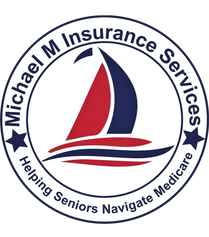When it comes to staying safe at home, medical alert systems are a popular choice for older adults, especially those living alone or managing chronic health conditions. These systems
provide peace of mind by allowing individuals to easily call for help in an emergency—whether it’s a fall, a sudden health issue, or a medical crisis.
But if you’re on Medicare , you may be wondering: Does Medicare cover the cost of a
medical alert system? Let’s dive into the details to understand whether this important safety tool is covered under Medicare, and if not, what your options are.
A medical alert system is a device that allows individuals to contact emergency services or
loved ones in the event of a medical emergency. These systems typically include:
- A wearable pendant or bracelet with a button that can be pressed to send an emergency signal.
- A base station that communicates with emergency responders or caregivers.
- Some systems may include fall detection , heart rate monitoring , and GPS tracking for added safety.
Medical alert systems can offer peace of mind for people who are at risk of falls, have mobility
issues, or experience other health concerns that require quick access to emergency assistance.
What is a Medical Alert System?
Does Medicare Cover Medical Alert Systems?
Unfortunately, Medicare does not cover the cost of medical alert systems. While Medicare provides coverage for a range of medical needs, including hospital stays , doctor visits , and prescriptions, medical alert systems fall outside of the scope of coverage under Original Medicare (Part A and Part B).
Medicare’s coverage mainly focuses on healthcare services that require medical treatment or medical equipment directly related to your condition. While a medical alert system can play an important role in ensuring your safety, it is not considered a medically necessary device under the current Medicare guidelines.
What Are Your Options if Medicare Doesn’t Cover the Cost?
While Medicare won’t cover the cost of a medical alert system, there are other options to help pay for this safety tool:
Medicare Advantage Plans (Part C)
Some Medicare Advantage plans may offer additional benefits beyond what is covered under Original Medicare, including coverage for wellness programs, home health services, or
medical alert systems.
- Check with your Medicare Advantage plan : Some plans may offer discounted services or partnerships with medical alert system providers.
- Wellness benefits : If your plan offers health and wellness benefits , inquire whether a medical alert system is included or offered at a discounted rate.
Health Savings Accounts (HSAs) and Flexible Spending Accounts (FSAs)
If you have a Health Savings Account (HSA) or Flexible Spending Account (FSA), you may be able to use those funds to cover the cost of a medical alert system. These accounts allow you to set aside tax-free money for qualified healthcare expenses, which may include certain medical devices and equipment, depending on the account’s guidelines.
Veterans Benefits
If you’re a veteran and are enrolled in the VA healthcare system, it’s worth checking with the
Department of Veterans Affairs to see if a medical alert system is covered or if there are any veteran-specific programs that provide financial assistance for such services.
Discounts and Manufacturer Offers
Many companies that provide medical alert systems offer discounts or special offers for seniors. It’s a good idea to shop around and look for deals that can help make the system more affordable.
- Some medical alert system providers offer monthly payment plans, which can make the system more manageable financially.
- Nonprofit organizations may also help subsidize the cost of a medical alert system for eligible individuals.
Final Thoughts: Finding Ways to Stay Safe
While Medicare doesn’t cover the cost of a medical alert system, these devices can still be an important tool in helping you stay safe at home. If you’re concerned about the cost, there are
options available to make the system more affordable, from Medicare Advantage plans to
discounts and financial assistance programs.
Make sure to check with your Medicare Advantage provider to see if a medical alert system is covered as part of their benefits. And if you’re interested in finding the best deal, don’t hesitate
to shop around for the right plan and take advantage of any available discounts or offers.

